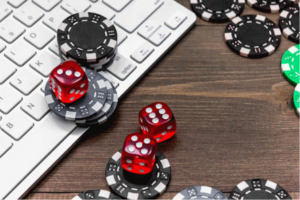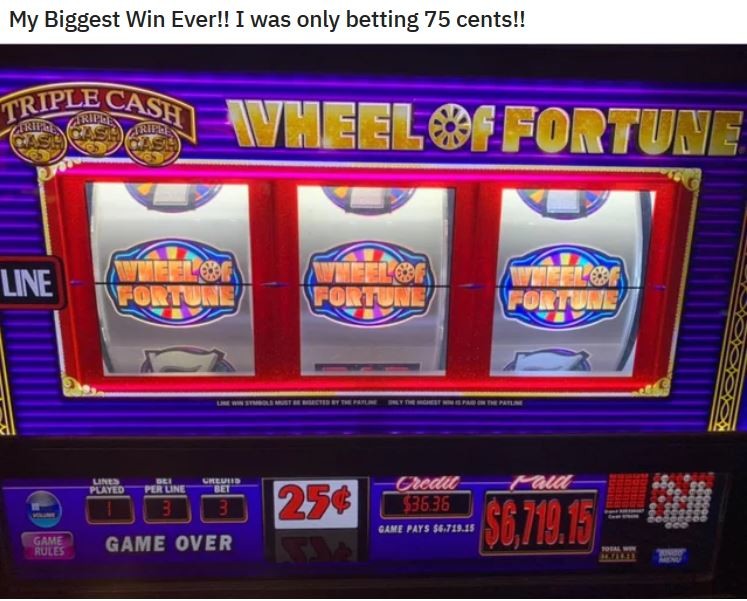 Ever questioned the reliability of online casino reviews? How do reviewers analyze a website’s authenticity and what’s in it for them? Are the websites we know as trusted worth the hype and are all new casinos trying to scam players? We delve deeper into the story in a bid to get to the truth.
Ever questioned the reliability of online casino reviews? How do reviewers analyze a website’s authenticity and what’s in it for them? Are the websites we know as trusted worth the hype and are all new casinos trying to scam players? We delve deeper into the story in a bid to get to the truth.
Casino Bee analyzes online casinos from the players’ point-of-view while keeping their feedback in mind. Not every reviewer, however, takes a neutral approach and this is a reason for concern. Let’s follow a few examples.
Financial Incentives
As surprising as it might sound, online casinos will pay a few trusted reviewers a hefty sum as remuneration in exchange for positive reviews. Some reviewers can even go to the extent of criticizing rival websites in a bid to sweeten the deal. As unethical as it sounds, this is a fairly common practice today.
In fact, most user reviews are fake! These are simply written to coax unsuspecting players into signing up on a particular website. However, not all review platforms are prone to malpractice. Forums are an excellent platform to interact with fellow enthusiasts and learn about their experiences.
How to Identify Fake Reviews?
The easiest giveaway is self-promotion and rival-bashing. Reviews that try and establish its patron as an authority in the respective field, are mostly fake. The only way to stay neutral is to keep away from such reviews.
Honest reviews stick to facts. However, graphs and charts can be misleading. Always validate facts before making a decision. This can be a struggle at first but becomes second nature with practice.
User reviews that all sound the same are fake and probably written by one person. A well-written review will be thorough and highlight both the positive and negative sides of the story. It’s the detail that counts! But no reviewer will analyze websites in great depth.
An honest review will cover all the important points without leaving any major surprises for the last minute.
Do Players Need Review Websites for Guidance?
Humans instinctually depend on peers for guidance. Searching for reviews is hence quite natural. The best way to get neutral feedback is to ask fellow gamblers for advice. There are numerous forums where people interact with like-minded individuals, and online casinos are no different.
Casino Bee is an attempt to highlight legitimate online casinos, to help newbies make informed decisions. Every casino listed on the website is top-rated by the users, and the list is updated according to the latest feedback.
However, the best way to stay protected is to never trust a single source. Check out what people are saying across multiple forums, run background checks on shortlisted casinos, and signup using a free account before trusting a website’s authenticity.
Identifying fake casinos isn’t rocket science. Stay away from unbelievable bonuses, question players on multiple forums, and watch out for fake reviews. The pattern is simple and is easily identified. Just need to know what to look for!
In the online casino world, the humble slot machine has become one of the most popular games with audiences all over the world. Much like their brick and mortar counterparts, gamers flock to online slots in droves and they can be found in the vast majority of online gaming platforms.
If you’re curious about playing online slots but don’t know the RTP from the Reels, keep reading for some useful tips that will help you get started.
A note on legality
As with all online casino games, online slots aren’t necessarily available to play in every country in the world, so if you do want to play them you will need to do so in accordance with your local laws. It goes without saying that you should only play real money games in a fully regulated casino, with an up to date licence from a recognised body such as the Malta Gaming Authority, the UKGC, the Kahnawake Gaming Commission etc.
A casino with a full licence to operate offers provably fair services and games, so you can be sure that each spin of the reel will produce a randomly generated outcome. If you’re ever in any doubt about the integrity of a gaming platform after visiting the site, a quick Google search should provide the answers.
Types of online slots
Online slots have come a long way from the one-armed bandits of the 19th century! Modern software developers are producing slots games in pretty much any theme you can think of, from festive and holiday-themed games, to movie and television slots, comic book slots, action and adventure slots, and even Virtual Reality slots.
Regardless of the theme, all online slots games can be categorised as one of the following:
3 Reel Slots – the simplest of all online games, these slot machines allow players to win by matching symbols on the top, middle, or bottom rows. They’re a great starting point for new casino players, as they can often be played for minimal wagers and more often than not will be included in free spin promotions from gaming platforms.
5 Reel Slots – a more sophisticated version of the three reel slot, five reel slots operate on the same basis, but they typically offer more paylines, which means an increased possibility of larger payouts.
Jackpot Slots – the main feature of a jackpot slot is its accumulating prize pool, which is generated by multiple players each time they spin the reels of the game. Whether fixed or progressive, jackpot slots have become a firm favourite with online gamers, as they offer the chance to win some pretty substantial prizes.
Mega Spin Slots – one of the latest types of games to hit the industry, mega spin slots offer players the chance to spin multiple reels at the same time from a single screen. These games also offer the potential for big winnings, due to the fact that multiple games are played concurrently, so they’re mostly popular with advanced gamers.
Paylines
Paylines determine which lines will award payouts if a winning combination of symbols is achieved during a game. In online slots games, players can choose which paylines they want to employ, and the more they choose the higher the chance of winning. Payline variations will determine the payouts, and they are typically either fixed or adjustable. Fixed paylines require players to stick with the same number of payouts throughout the entirety of their time playing the game, and once decided upon there’s no option to change. Adjustable paylines, on the other hand, offer more variety, since the paylines can be altered to either decrease or increase the amount being wagered.
Paylines are a key area of playing online slots, so before you lay down any cash it’s important to check what your options are so you can measure their potential impact on your ability to win with each spin.
Return to Player
The Return to Player (RTP) determines how much a slot machine will pay back to players per unit wagered. It’s more commonly listed as a percentage value on a casino platform’s site, and will typically be less than 100%. The difference between full payback (100%) and the listed RTP is the house edge, aka the casino’s profit. An RTP that’s in the high 90s is referred to as a loose slot, while one that’s lower is tight.
Some games feature an RTP range with a substantial difference between the minimum and maximum values. This is usually caused by the game having different paylines that can be chosen by the players, or differences in bonus rounds that payout according to the choices made by the players during a game.
 Time waits for no man, and the casino environment is no exception to that. It’s of course only a stones throw back when all casinos were offline, and payments were generally in cold hard cash. The world moves on though and electronic payments and the like were suddenly part of the picture.
Time waits for no man, and the casino environment is no exception to that. It’s of course only a stones throw back when all casinos were offline, and payments were generally in cold hard cash. The world moves on though and electronic payments and the like were suddenly part of the picture.
The advent of online casinos was the real game changer. The convenience factor was suddenly at the fore, with no need to enter a dark and dingy environment with strangers sidling up besides you. Instead it was now possible to play your favourite casino games such as poker or roulette in the comfort and privacy of your own home. It was a revelation for many and certainly transformed the entire gambling environment.
Technology marches on and now we enter the era of crypto gambling. Individuals preferring to gamble with the additional layer of privacy and convenience offered by digital currencies such as Bitcoin (BTC). Indeed, there are both online and offline venues that now accept cryptocurrency. They frequently use a respected and reliable third party to deal with payments. Using cryptocurrencies is typically faster than other waging options, which is another factor that appeals to many.
There are numerous Bitcoin casino sites out there, which has resulted in the emergence of crypto gambling news and also review sites, to keep gamblers in the loop with both developments and which sites are the most trusted. Reputation is everything in this area and understandably so. Cryptocurrency gambling is well suited to the under the radar type gambler and well as those whose businesses or lives routinely deal in bitcoin. Over all it still currently only makes up a small portion of the online casino environment, but it’s expected to assume a growing role over the coming months and years.

